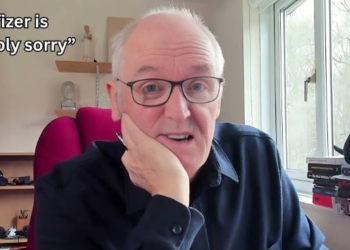
Fertility treatments are getting more and more advanced with each passing year. Newer techniques and procedures are helping many couples fulfill their dream of becoming parents. India is at the forefront when it comes to fertility treatments. The IVF doctors in India are well-versed with the latest advancements in fertility treatments and have all the required training and experience in this field. Affordable treatment options and high success rates have made India a preferred destination for IVF treatment. One of the most sought-after treatments is IVF with donor eggs in India.
According to Dr. Hrishikesh Pai, the best IVF doctor in India many couples nowadays are open to the idea of undergoing fertility treatments with donor eggs, sperm, and embryos. He further states that infertility among couples is on a rise but with advancement in treatments, they can realize their parenting dreams. As you know, with increasing age of the women, the chances of a successful IVF cycle decreases. This is because of the egg quality, which decreases as you age. Fortunately, the success rate is relatively high for IVF with donor eggs in India. This is possible as the donor eggs are from healthy, young, and fertile women.

Usually, the fertility clinics in India procure the eggs from donors aged between 21 to 33 years. The eggs from this age group are of better quality and have higher chances of pregnancy.
Why India is considered the hub for IVF with donor eggs?
Nowadays, it is highly common to use donor eggs, especially for women above 40 years. Approximate 10% of IVF procedures are done using donor eggs in India, as it gives a higher success rate. The IVF doctors in India are highly experienced in providing treatment using donor eggs. With years of training and performing a large number of procedures, they have gained the requisite expertise to deal with complicated cases with ease and success. Several fertility clinics in India offer egg donation. They follow a strict protocol for screening the donors so as to reduce the risk of congenital anomalies. The donors are screened for genetic disorders and diseases like AIDS, hepatitis, etc.
If medical tourists want to opt for undergoing the treatment in India there are several healthcare aggregators like ClinicSpots to help them through their visit and treatment in India. Further, their family history is checked and it is preferred that the donor is married with children as it establishes their ability to bear children. Apart from this, even psychological screening is carried out. It is important to evaluate the donor’s mental health. Moreover, most egg donation in India is anonymous. The clinics in India are very particular about the privacy of their clients and do not disclose any information about the treatment to anyone. Most importantly, the couples can find an ideal donor according to their specifications like height, eye, and hair color, having educational qualifications, etc. The couples also have the option of choosing between fresh and frozen donor eggs in India. If using fresh donor eggs, then you and the donor have to be on the same hormonal cycle so that your uterus is ready to receive the embryos. Whereas, if you are using frozen eggs, then the eggs will be thawed once your uterus is ready.
Factors that prompt couples to use donor eggs
Sometimes couples cannot conceive for a variety of reasons and in some cases, it becomes necessary to use donor eggs. Listed below are the conditions that make you a candidate for donor eggs:
- When your previous IVF cycles have failed due to poor quality eggs.
- You are suffering from premature ovarian failure. This is a condition where the menopause starts early, usually before 40 years.
- Sometimes the couples are scared to pass on genetically transmitted diseases to their children, in such a scenario they may opt for donor eggs.
- Another reason is diminished ovarian reserve. The woman may have few eggs of low quality with which it is not possible to conceive and further after 40 years, the fertility drops drastically.
- IVF with donor eggs is a boon for women who have undergone radiation and chemotherapy treatment for cancer. Their eggs are destroyed and thus cannot conceive naturally.
- Also, women suffering from severe endometriosis and tuberculosis produce low-quality eggs and may need egg donation.
Age limit for egg recipient
In India, the age limit to undergo IVF using donor eggs is 55 years. The decision is taken after an in-depth diagnosis by the doctor and also a psychiatrist who evaluates the patient to assess whether they are physically and mentally fit enough to withstand the pressure of childbirth. The IVF clinics in India have patients from all over the world. Many NRI patients prefer undergoing their treatment here as not only the success rate is high for IVF with donor eggs but also the treatment cost is reasonably priced here.














